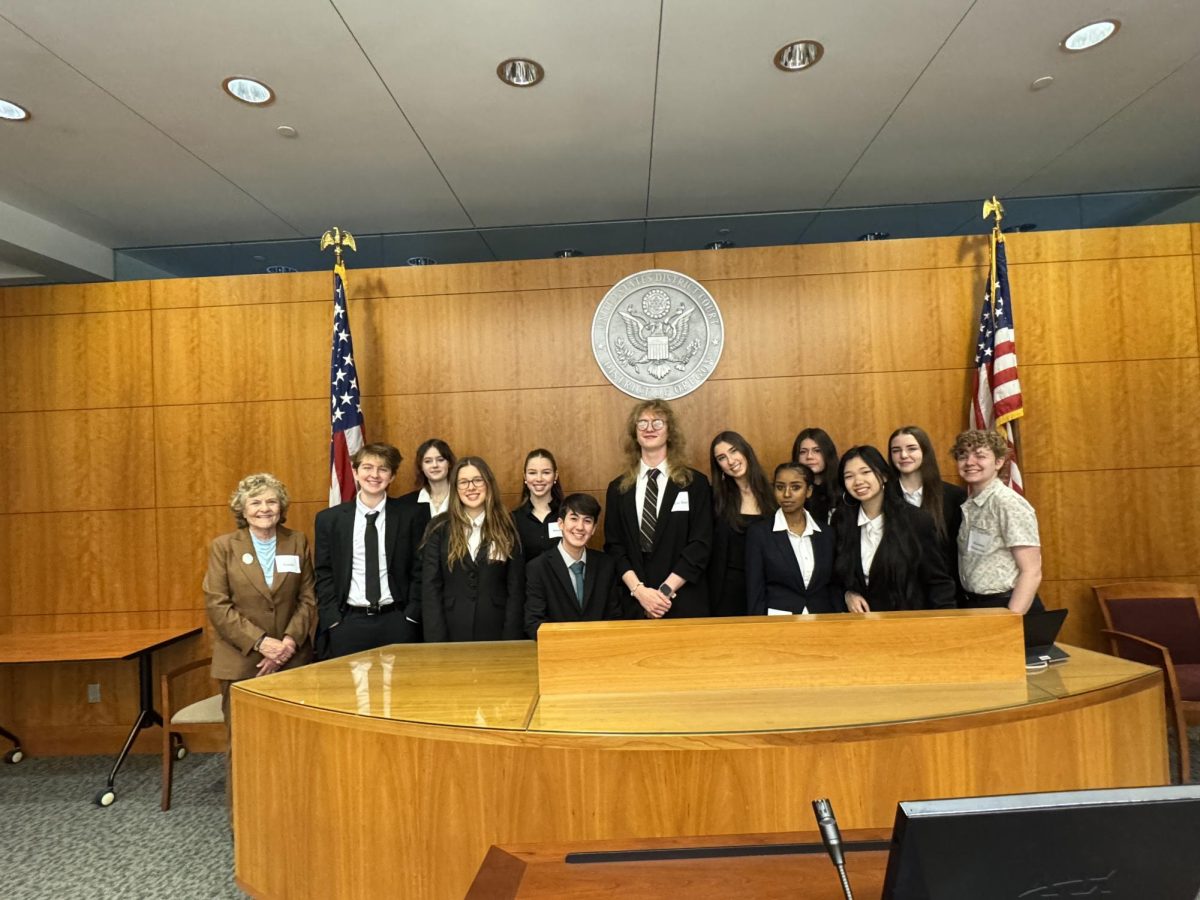On Oct. 4, 2022, Portland Public Schools (PPS) officially announced that it would be joining a national lawsuit against Juul Labs Inc. (JLI), a company that produces highly-addictive e-cigarettes.
The use of e-cigarettes, colloquially known as “vaping,” is an epidemic that affects an increasing percentage of youth. In 2021, the Centers for Disease Control and Prevention (CDC) conducted a survey which concluded that an estimated 2 million middle school and high school students vape across the United States, and that number is likely underreported. E-cigarettes contain the chemical nicotine, which is highly addictive. According to JLI, just one of their devices contains the same amount of nicotine as 20 cigarettes. The CDC reported that approximately two-thirds of Juul-users aged 15-24 did not know that a Juul device contains nicotine.
Nicotine is incredibly harmful to the human body, especially to the developing juvenile brain. JLI products were created with flavors like mango, cucumber, and fruit; these colorful devices targeted youth as young as 12 and are surprisingly easy to obtain. In 2020, the Food and Drug Administration (FDA) banned the sale of flavored e-cigarettes by JLI, meaning they now are only able to distribute tobacco and menthol flavored devices. However, the FDA reviews each brand on a case-by-case basis, allowing dozens of other brands to continue to produce and distribute fruity or sweet flavored nicotine products.
Mary Stevens-Krogh, PPS Coordinator of Substance Use Supports, sees the vaping epidemic as a particularly scary issue because it is impossible to know what the long-term effects of using e-cigarettes are. She says, “[we] don’t have any long term data. We’ve got a lot of long term data about what happens to people they smoke for 20 or 30 years. We don’t have anything on e-cigarettes. It’s scary what that’s going to look like 20 years from now.”
According to Forbes, as of Oct. 2022, JLI has over 4,000 lawsuits against them, most alleging the company has purposefully marketed to teens and not been transparent about the product’s negative side effects. In early October, PPS joined a lawsuit against the corporation with other school districts across the country. Stevens-Krogh says, “the lawsuit that PPS and other districts are doing with Juul is slightly different than the one that the state of Oregon did,” referring to the lawsuit issued against JLI prior to the current PPS one. She continues, “the lawsuit that we’re involved in is more expensive than that. We’re also suing companies that were subsidiaries and parent companies of Juul, with the hopes of getting a large settlement. That money would come into the district and be used for nicotine prevention programming.”
The 300-plus page case document contains plenty of indicting information against JLI, including proof of the organization marketing to minors and spreading the false information that their products did not cause harm. PPS is the first school district in Oregon to join this lawsuit, and Stevens-Krogh stated that “PPS is committed to the health and well-being of our students. We’re proud to demonstrate this commitment by becoming the first school district in Oregon to join the JUUL lawsuit. The defendants’ predatory practices have victimized students—our students—and we have a responsibility to hold them accountable for the harm they have caused our community.”
When the district publicly announced they were joining the lawsuit, some community members and PPS staff had concerns about certain wording in the document that alluded to the idea that settlement money from the lawsuit would be used to implement high-security protocols and technology in schools, specifically in private spaces like bathrooms and locker rooms. “There is some wording in the lawsuit that said things such as [PPS] might potentially use funding from the lawsuit for additional cameras or devices that can detect vape pen vapor,” explains Stevens-Krogh. “I think the key word there is potentially. [PPS] might use it for that. It’s far enough down the road that I think if we’re able to win and get some money from the class action lawsuit, then if I were to still be in this [position], I would try and speak into and give my opinion about how those funds would best be utilized.”
So what other ways could the money from the lawsuit be used? One inequity not commonly recognized is the lack of support and resources for youth struggling with nicotine addiction. Stevens-Krogh explains that while adults are able to get insured nicotine treatment and therapy, with cheap or free nicotine patches and gum, those under 18 are not. Since companies like JLI have large groups of young users, this is a large issue. “I would want to look nationally and internationally to see what other groups have done to offer treatment around nicotine because we already have 15 to 17 year olds that are struggling with a nicotine addiction,” she says. “It’s really hard to say now because any settlement is at least a few years out, but if I had access to money right now, I would hire a person that would do something very similar to what I do with focus on nicotine education, prevention, and some intervention support.” She describes the success of a program called “Insight,” which is for youth struggling with substance abuse. Said individuals attend the program, which includes six hours of psychoeducation about substances, teen brain development, healthy communication, families, and decision making. She also discusses new programs on the horizon, all with the intention of preventing youth addiction and ultimately serious illness or death caused by substance abuse of young people in the future.
This lawsuit is just one step in tackling the nicotine crisis, and PPS joining it is a bold move to ensure the safety of its students for years to come.
































